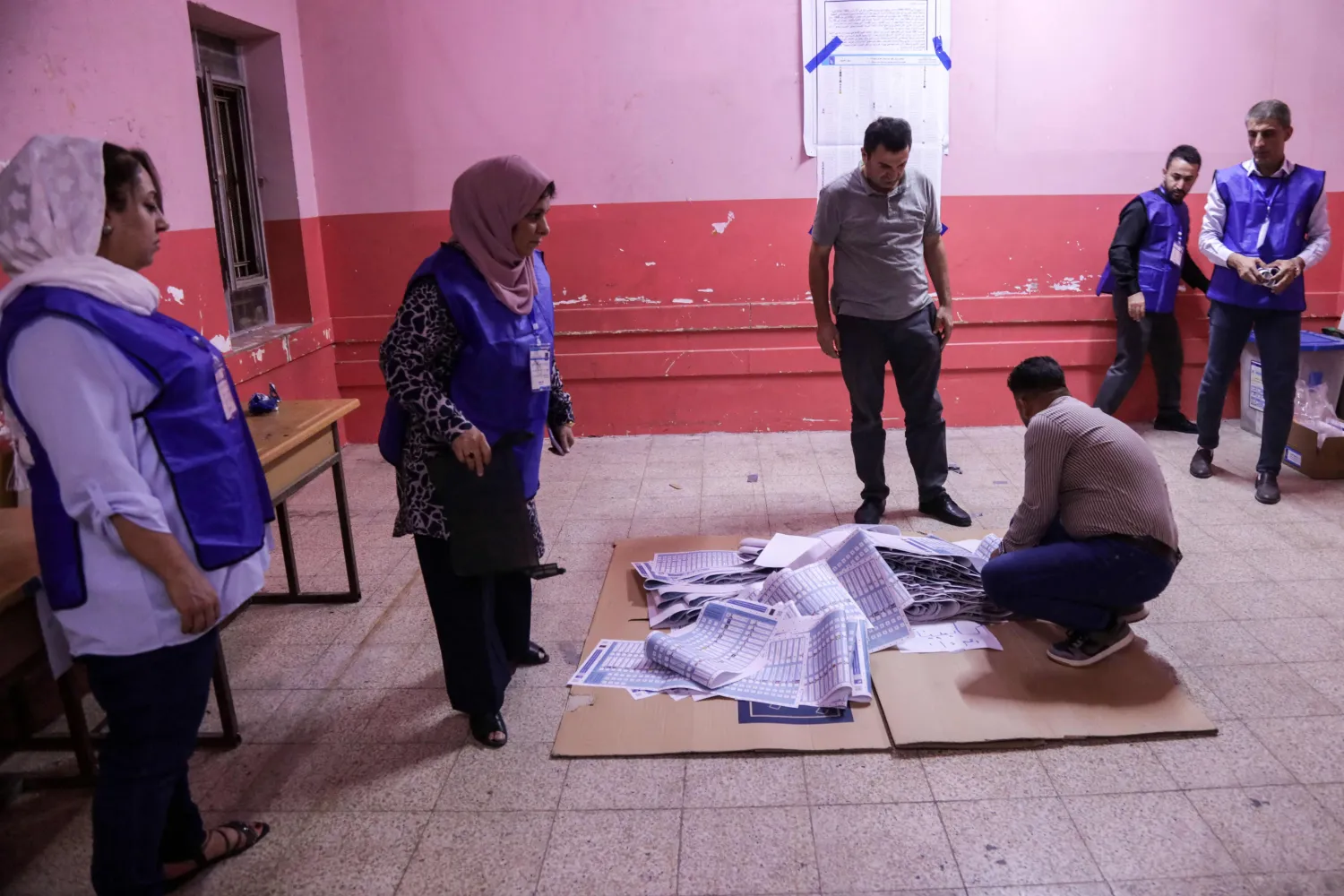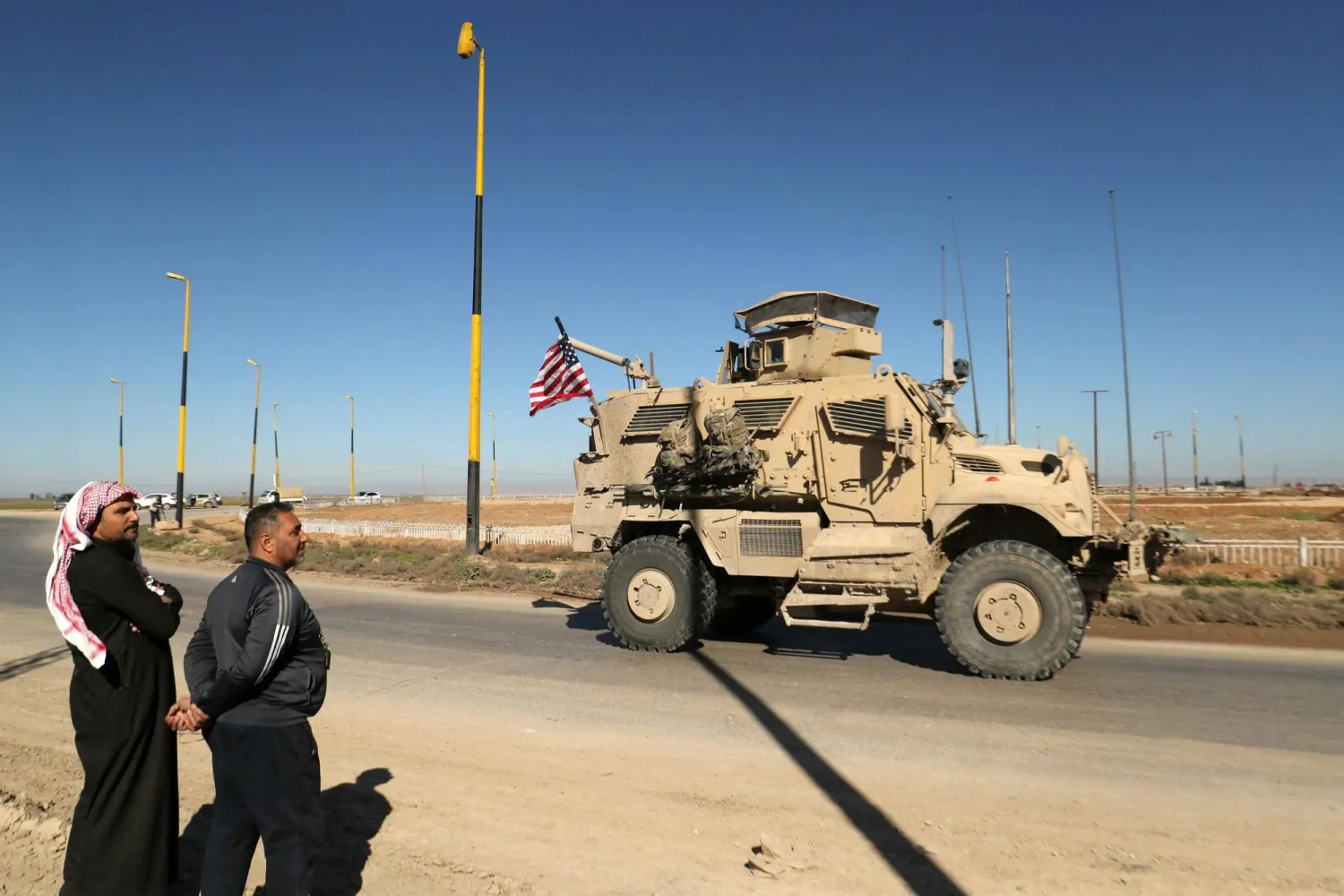Residents of Iraq’s semi-autonomous northern Kurdish region went to the polls in long-awaited parliamentary elections Sunday under the shadow of ongoing rivalries, economic instability and unresolved disputes with Baghdad.
The primary competitors are the two dominant Kurdish parties: the Kurdistan Democratic Party and the Patriotic Union of Kurdistan. The two have historically controlled different parts of the region, with the KDP overseeing the regional capital, Irbil, and Dohuk and the PUK governing Sulaymaniyah.
This division has frequently led to political deadlock. The parliamentary elections, originally set for 2022, were postponed several times amid disputes over the election law and procedures.
Ministry of Interior personnel and peshmerga forces — the regional military — voted in special elections Friday, with the general public voting Sunday.
In Friday’s special election, the KDP secured a significant lead, capturing 60% of the votes, while the PUK got around 30%. The New Generation Movement, an opposition party that has seen a gradual rise in support, garnered 5.3% of the total, up from 3% in the 2018 special election. In that special election, the KDP garnered 40% of the vote and the PUK 28.5%.
While New Generation’s appeal continues to grow, particularly among younger voters frustrated with the traditional political system, it still faces significant challenges in competing with the well-established dominance of the KDP and PUK.
Results of Sunday's vote were expected to be announced Monday.
At some polling centers, there were delays due to malfunctions in fingerprint scanners used for biometric verification of voters’ identities. In some cases, it was unclear if voters whose fingerprints could not be scanned would be able to vote at all.
At a center in Irbil's Ankawa district, resident Raman Ramzi said his wife and mother hadn't been able to vote due to fingerprint and ID recognition issues caused by the biometric machines. A number of other would-be voters left the station without casting a vote due to the same issue.
At another polling station in Irbil, coordinator Sirwan Gardi said that three to four percent of prospective voters' fingerprints were not being recognized by the devices, particularly older people and women.
Rizgar Maghdid, whose fingerprint was not recognized, said he felt sad because he could not vote. Voting “is an essential right of humans,” he said. “I would like to vote for the person who would serve us and our country.”
Regional government Prime Minister Masrour Barzani, a KDP official, called on voters to “reward service and truthfulness and punish the parties that are playing with the rights and destiny of the people of Kurdistan," using the region's local name.
The region’s economic struggles are voters’ primary concern. Despite its oil wealth, the Kurdish region faces significant economic issues, including delayed payment of salaries to civil servants, fluctuating oil prices, and budget cuts from Baghdad. The public is deeply dissatisfied with the economy and lack of opportunities, and many blame political leaders for mismanagement.
“People want to have electricity and get paid their salary on time, and to have more jobs. This is all they want," said Ghazi Najib, who went to the polls in Irbil.
Corruption is also among the central issues in the election. For years, the regional government has faced allegations of nepotism and lack of transparency. Many voters, particularly among the younger generation, are calling for reforms to address these concerns.
Many voters, however, have lost hope for reforms and are also skeptical of opposition parties’ ability to make changes, given the longstanding hold the two major parties have over the political landscape.
Political cooperation with the central government is another key electoral issue. Relations between Irbil and Baghdad have remained tense since a 2017 referendum over independence for the Kurdish region, particularly over issues of oil revenue sharing and budget allocations.
Iraqi Prime Minister Mohammed al-Sudani in a recent visit to Irbil said, “We are committed to ensuring the rights of the Kurdish people, but this must be done within Iraq’s constitution.”
In certain areas, the current elections are significantly influenced by security concerns since the ISIS group sleeper cells are still active in areas that are disputed between the regional and central governments.
“We hope that Kurdistan will be more developed, and to see more safety and reconstruction in Kurdistan,” said Jamila Mohammed Amin, a voter in Irbil. “All political parties and entities should work together and achieve these goals and protect it against enemies.”
Iraq's Kurdish Region Goes to the Polls With a Flagging Economy and Political Infighting Top of Mind

Employees of Iraq's Independent High Electoral Commission (IHEC) count votes at the end of the parliamentary election, at a polling station in Irbil, the capital of Iraq's autonomous northern Kurdish region, on October 20, 2024. (Photo by Safin HAMID / AFP)

Iraq's Kurdish Region Goes to the Polls With a Flagging Economy and Political Infighting Top of Mind

Employees of Iraq's Independent High Electoral Commission (IHEC) count votes at the end of the parliamentary election, at a polling station in Irbil, the capital of Iraq's autonomous northern Kurdish region, on October 20, 2024. (Photo by Safin HAMID / AFP)
لم تشترك بعد
انشئ حساباً خاصاً بك لتحصل على أخبار مخصصة لك ولتتمتع بخاصية حفظ المقالات وتتلقى نشراتنا البريدية المتنوعة







